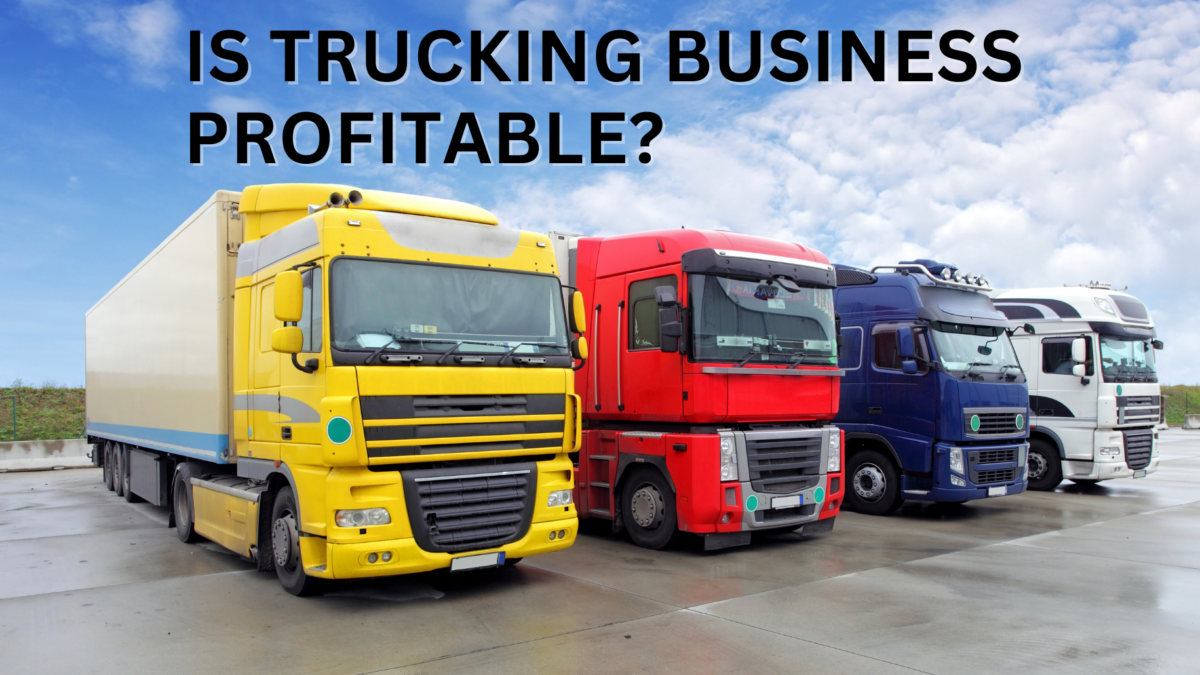Is Trucking Business Profitable? Exploring the Pros and Cons

How to Start a Dump Truck Business: A Comprehensive Guide
July 26, 2023
Do You Need a CDL to Drive a Box Truck?
August 14, 2023The trucking industry is a vital component of the global economy, liable for transporting goods throughout various distances. However, many aspiring entrepreneurs wonder if starting a trucking business is a profitable venture. In this blog, we will discuss the world of trucking, analyzing the most important factors that make a contribution to its profitability or to know “is trucking business profitable or not”. By exploring the advantages and challenges associated with the trucking enterprise, we aim to offer a comprehensive understanding of the industry’s financial prospects.
1. Growing Demand and Market Potential:
One of the primary reasons why the trucking business holds significant profit potential is the constant demand for freight transportation services. As economies expand and global trade increases, the need for efficient logistics solutions becomes paramount. Trucking plays an important role in delivering goods to diverse destinations, ensuring the smooth flow of supply chains.
Moreover, advancements in e-commerce have increased the demand of trucking services, with online retailers relying heavily on time delivery of products. The rise of just-in-time manufacturing and the need for swift transportation further contribute to the industry’s growth.
2. Profitability Factors:
Revenue Generation: Trucking corporations generate revenue through freight transportation contracts, which can be received from manufacturers, retailers, or freight brokers. Depending on the form of trucking commercial enterprise, revenue streams can encompass full-truckload (FTL) shipments, less-than-truckload (LTL) shipments, or specialized cargo transportation.
Cost Considerations: While revenue potential is high, trucking businesses must carefully manage expenses to maintain profitability. Most of these Key costs include fuel, insurance, permits, licensing, vehicle maintenance, and driver salaries. Additionally, fluctuations in fuel costs and regulatory changes can also affect the profitability of the business.
Operational Efficiency: Maximizing operational efficiency is crucial for profitability. Effective route planning, load optimization, and fleet management can significantly reduce costs and increase the number of trips made per day, thus boosting revenue.
Scalability: The scalability of a trucking business can make a contribution to its profitability. As the enterprise expands its fleet and client base, it is able to negotiate higher contracts, obtain economies of scale, and boom its basic marketplace percentage.
3. Challenges and Considerations:
Capital Intensive: Establishing a new trucking business comes with a significant upfront investment. Purchasing or leasing trucks, hiring new drivers, and setting up the essential infrastructure can be costly. Moreover, some ongoing expenses such as regular maintenance, fuel costs, and on-time insurance should be carefully managed to avoid negatively impacting business profitability.
Competitive Industry: Nowadays the trucking industry is huge and competitive, with various companies vying for contracts. To succeed, businesses must differentiate themselves through exceptional service, reliability, and competitive pricing. Building a strong reputation and developing long-term relationships with clients are vital in gaining a competitive edge.
Regulatory Compliance: Trucking businesses must comply with various regulations, including safety standards, hours-of-service rules, and environmental requirements. Staying updated with changing regulations and ensuring compliance can be complex and time-consuming.
Driver Shortage: The industry faces a persistent shortage of qualified truck drivers. Hiring and retaining skilled drivers is essential for smooth operations and customer satisfaction. Offering competitive wages, benefits, and a positive work environment can help attract and retain talented drivers.
Conclusion:
While the trucking industry offers significant profit potential, starting and running a profitable trucking business requires careful planning, effective cost management, and adaptability to market changes. By considering the growing demand for transportation services, enforcing efficient operational strategies, and addressing challenges which include competition and regulatory compliance, entrepreneurs can position themselves for success in the trucking commercial enterprise. Despite the challenges, for those willing to invest time, resources, and determination, a well-managed trucking enterprise can indeed be a profitable task.

